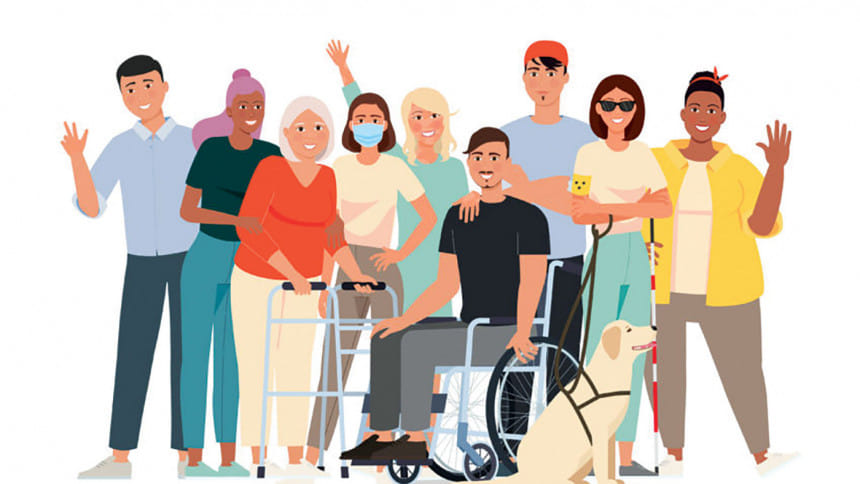Amplifying the leadership of persons with disabilities

More than 1.3 billion people worldwide experience significant disability, representing 16% of the global population. Many persons with disabilities face higher mortality rates, are at increased risk of various health conditions, and encounter greater limitations in everyday functioning compared to others. These poorer health outcomes are termed 'health inequities' because they are largely avoidable and driven by unjust factors both within and beyond the health sector.
These inequities stem from unjust and unfair conditions, including stigma and discrimination, poverty, exclusion from education and employment, and barriers within health systems. Factors contributing to this include societal discrimination, inequitable policies, social determinants of health, inadequate access to or quality of care, and negative attitudes from health workers, among others. These inequities serve as a stark reminder that persons with disabilities are too often left behind. Achieving good health and well-being for all, as outlined in Sustainable Development Goal 3 (SDG-3), necessitates the meaningful participation and empowerment of persons with disabilities. Disability inclusion must be central to health system planning, development, and decision-making. Effective health systems also underpin robust management of health emergencies.
Failing to address health inequities for persons with disabilities denies them the universal right to the highest attainable standard of health. The World Health Organisation (WHO) is committed to tackling these inequities through innovative and transformative approaches to health systems. SDG-3 cannot be achieved unless health equity for persons with disabilities is at the forefront of efforts.
Regardless of context and available resources, governments and health sector partners must prioritise health equity for persons with disabilities. This includes empowering and involving persons with disabilities in health sector initiatives and monitoring the impact of these actions. Striving for health equity for persons with disabilities is a step towards achieving 'Health for All.'
The achievement of the Sustainable Development Goals for, with, and by persons with disabilities is more attainable than ever if we work together. In 2019, UN Secretary-General António Guterres launched the Disability Inclusion Strategy (UNDIS) to embed disability inclusion into every core function and activity of the UN system.
December 3 is the International Day of Persons with Disabilities (IDPD). On this day, WHO collaborates with partners globally to advocate for action towards achieving the Sustainable Development Goals for, with, and by persons with disabilities.
The theme for this year is 'Amplifying the Leadership of Persons with Disabilities for an Inclusive and Sustainable Future.' This theme highlights the pivotal role of persons with disabilities in creating a more inclusive and sustainable world. It also underscores the importance of their participation in decision-making processes that impact their lives.
This year's theme aligns with the current international political and policy landscape, particularly the Pact for the Future and the upcoming 2025 World Summit for Social Development. It aims to build momentum for achieving the 2030 Agenda. By amplifying the leadership role of persons with disabilities, these efforts—from global to local levels—can drive meaningful change.
The writers are the assistant professors of Neonatology at the Institute of Child & Mother Health (ICMH), Matuail, Dhaka. Email: [email protected], [email protected]

 For all latest news, follow The Daily Star's Google News channel.
For all latest news, follow The Daily Star's Google News channel. 



Comments